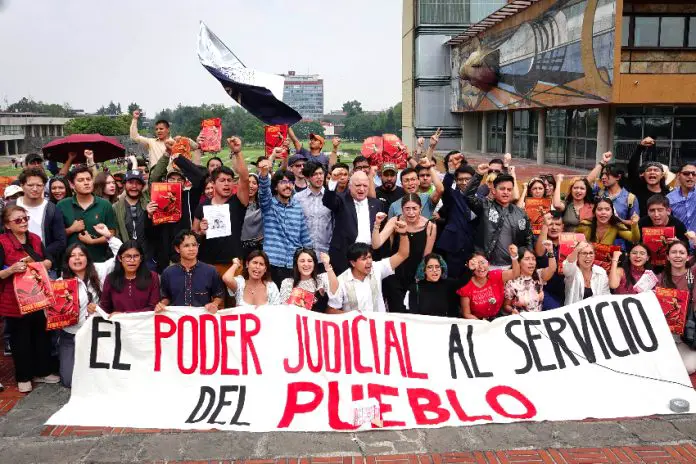More than 18,000 people expressed interest in standing as candidates in Mexico’s first ever judicial elections in 2025, the federal government announced Monday.
Arturo Zaldívar, coordinator of policy and government in the administration led by President Claudia Sheinbaum, thanked 18,447 people for registering their interest in participating in the judicial elections scheduled to be held on June 1, 2025.

Zaldívar, a former Supreme Court justice who resigned in late 2023 to join Sheinbaum’s presidential election campaign team, noted that the registrations were made on an “executive power” website.
Mexico’s Congress and the judiciary also accepted registrations, as they — in addition to an “executive power” committee headed up by Zaldívar — will select candidates to contest the judicial elections. The Congress received more than 11,900 registrations while the judiciary received over 3,800.
Some would-be judges likely submitted registrations to the federal executive, the Congress and the judiciary.
A total of 881 judges, including nine Supreme Court justices, are set to be elected by popular vote next year. Mexico’s inaugural judicial elections will take place as a result of the enactment of a controversial judicial reform that was approved by Congress in September.
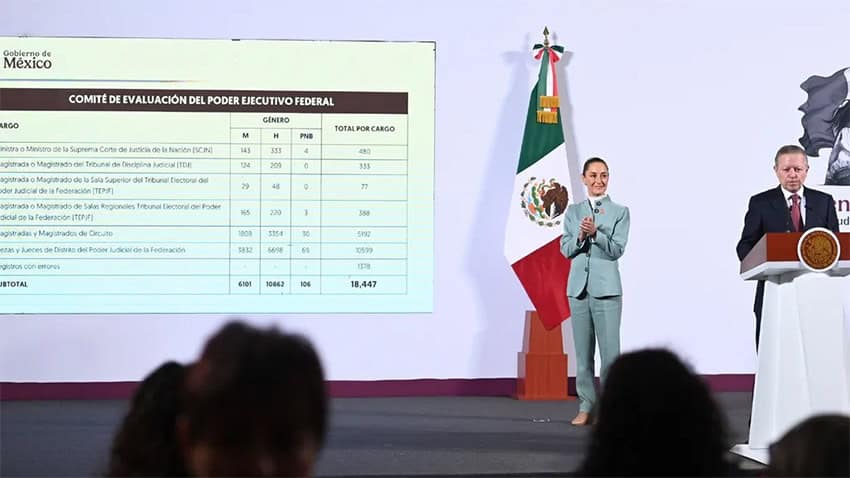
Sheinbaum said that the registration process for judicial aspirants — which began on Nov. 5 and concluded at midnight Monday — was “a complete success.”
“[It was] something unprecedented, historic,” she said.
A second round of judicial elections is scheduled to be held in 2027.
Critics of the judicial reform argue that the direct election of judges will politicize the judiciary, but Sheinabum and other government officials reject claims that Mexico’s courts will lose their independence. The president asserts that a judicial overhaul via the election of judges is necessary to eliminate corruption and other ills from Mexico’s justice system.
Almost 500 people interested in becoming a Supreme Court justice
Zaldívar said that 10,862 men, 6,101 women and 106 people who identify as nonbinary successfully registered their interest in contesting next year’s judicial elections.
An additional 1,378 people made errors when submitting their registrations and will therefore not be considered by the executive’s candidate evaluation committee.
Zaldivar said that 480 people “aspire” to become Supreme Court (SCJN) justices. But just 27 will ultimately be selected to contest the election to win one of nine positions on the bench of Mexico’s highest court.
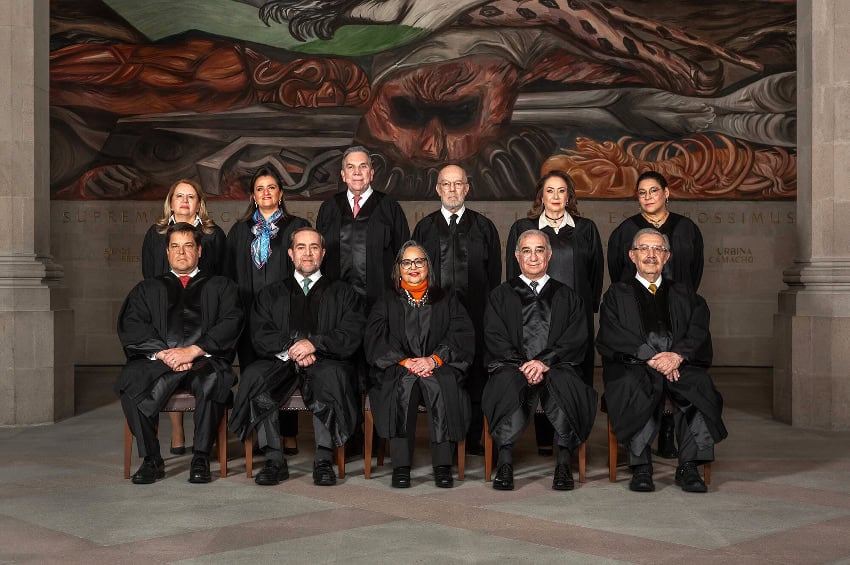
More than 10,000 people registered their interest in contesting federal district judge elections, while over 5,000 want to stand as candidates in circuit court elections.
The remainder of those who registered on the federal government website want to become electoral judges or magistrates with the Judicial Discipline Tribunal.
Minerva Martínez Garza, an academic and former president of the Nuevo León Human Rights Commission, is among those hoping to win a position on the SCJN.
She told the Associated Press that the election of judges will help Mexico’s justice system overcome “the legitimacy crisis” it suffers.
“We need a justice system that provides results,” Martínez said, adding that the recently-enacted judicial reform will help to eradicate corruption in the judiciary and favor a more rapid delivery of justice.
“This change is profound,” she said.
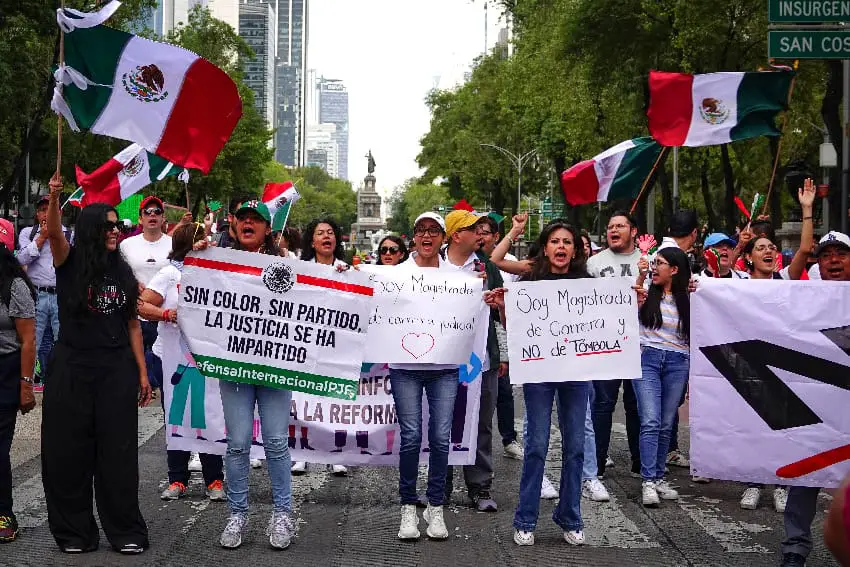
Sergio Méndez Silva, a legal official with the Fundación para la Justicia (Foundation for Justice), a Mexico City-based non-governmental organization, has a different view about the direct election of judges.
“One doesn’t choose a doctor for an operation based on popularity,” he said, explaining that a surgeon is chosen because of his or her “technical knowledge, expertise and skill.”
“… The same thing [should] apply for a judge,” Méndez said.
He expressed concern about the makeup of the executive, congressional and judicial committees that will assess the qualifications and experience of those vying to become judges, asserting that people aligned with the ruling Morena party are among their members.
Of the 11 current SCJN justices, just three — all of whom are widely seen as sympathetic to Morena’s agenda – intend to contest the 2025 judicial elections.
The candidate selection process
Over the next three weeks, the federal executive’s candidate evaluation committee will look at the qualifications and experience of those who expressed interest in becoming judges to determine whether they comply with the “formal requirements,” Zaldívar said.
Among the requirements are the following:
- A law degree.
- Five years’ of professional experience.
- Presentation of five letters of recommendation from neighbors and colleagues.
Lawmakers had proposed setting a minimum age of 35 for judges but ultimately decided against that requirement.
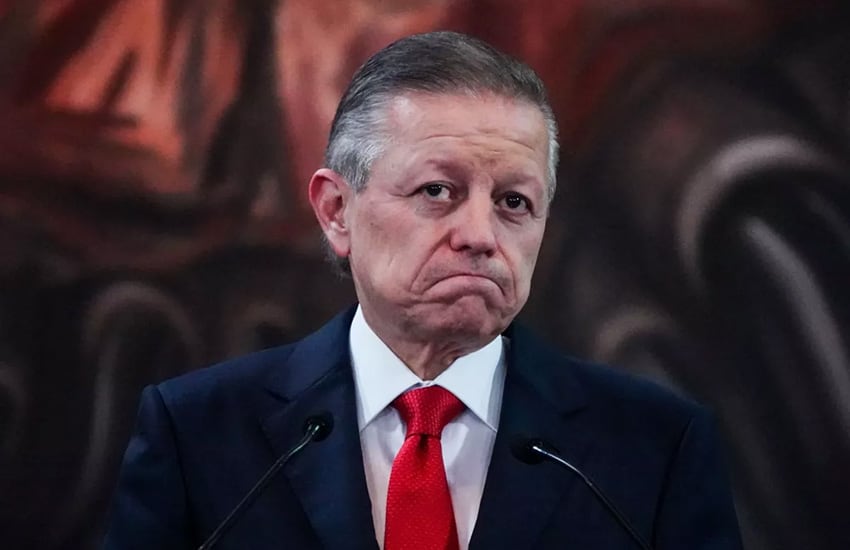
Zaldívar said that the executive’s evaluation committee will be looking for people who are “honest, qualified” and “committed” to delivering “the justice we all expect” as well as “building a better justice system.”
“It’s clear that the one we have now doesn’t satisfy the yearnings and legitimate demands of the people of Mexico,” he said.
Zaldívar said that the “most suitable” candidates will be selected by Dec. 14. Those “finalists” will participate in a public interview process after which some of them will be selected as candidates via sortition, or selection by lottery.
The official said that the response from Mexico’s lawyers to the call to register as judicial election candidates was “amazing.”
“The results are spectacular, they exceeded all expectations, which demonstrates the interest of the people of Mexico in this process,” he said.
“… It’s a historic event because for the first time we’re going to elect judges in Mexico, it’s an event that will completely transform our democratic, social and political life,” Zaldívar said.
With reports from Infobae, Reforma, El Financiero and AP
